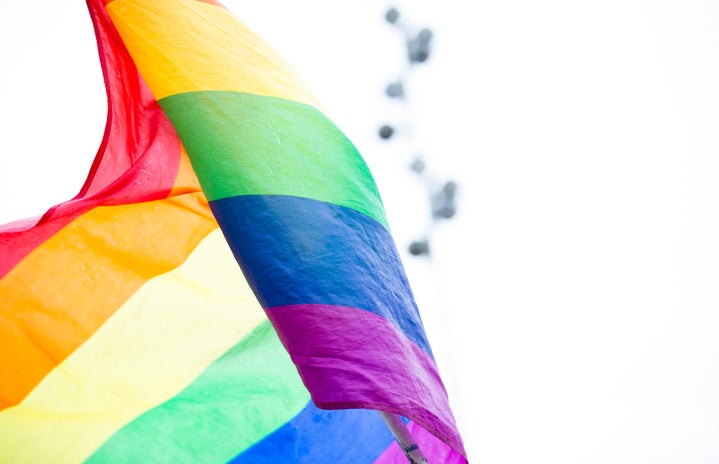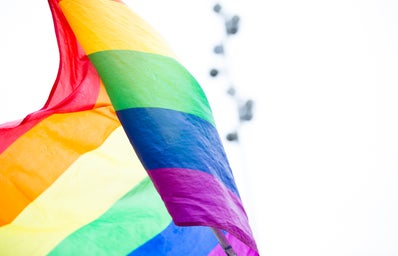*Spoilers for The Last of Us Season 1
It’s been several weeks since HBO’s hit-series adaption of the critically acclaimed video game, The Last of Us (TLOU), aired and I’m still not over the ending — and yes, I’ve played the game and sequel numerous times (I even bought the PS5 TLOU Part 1 remake) and no, I still wasn’t prepared for the emotional devastation of Joel’s decision and Ellie’s knowing “ok,” which was made all the more gut-wrenching given the show’s in-depth backstories, stellar performances by Bella Ramsey and Pedro Pascal, and Neil Druckmann and Craig Mazin’s commitment to top-notch storytelling that expands upon its origin.
What sets TLOU apart from previously failed or mediocre video game-to-screen-adaptations — Resident Evil, Assassin’s Creed, Tomb Raider (at least the 2018 reboot), etc. (Arcane is an exception, and features phenomenal, must-watch storytelling and animation) — is 1) Neil Druckmann’s, the creator and director of TLOU, involvement and 2) purposeful deviations that further emphasize ideas and narrative elements that weren’t explored in the source material due to differing mediums. Video games are interactive and actively engage the player through gameplay, upgrade systems, and exploration, supplementing cinematic cutscenes, whereas film/TV focuses solely on narrative and character arcs, enabling it to depict character psyche and interactions in a more detailed manner. Consequently, the changes to the TLOU (ex: an interconnected fungal network instead of spores, the 1968 talk show cold open and the outbreak in Jakarta, Sam’s deafness, David’s position as a cult leader and former teacher, Anna’s death scene) serve to highlight aspects present in the game by elevating them to greater nuance and potency in the remake.
One such change is Bill and Frank’s relationship, whose romance is heavily implied but never explicitly stated in the game, merely hinted at through coded dialogue and subtle references that players can miss (e.g., a note detailing their strained relationship, Bill’s optional conversation with Joel about the letter, Ellie’s discovery of an adult gay magazine.) The only time Frank is directly mentioned is in a cutscene that reveals his hanged body and Bill’s distraught reaction and mention of him as his “partner.” While a telling choice of words, besides the optional note and conversation, the game doesn’t add anything further and leaves the relationship up to possible interpretation (though, to any LGBTQ+ person, it’s evident their dynamic extends beyond platonic). However, in the show, the creators deliberately portray the couple’s queer relationship, expanding upon the game’s subtext to illustrate a beautifully poignant twenty-year romance that serves as a standalone love story and respite from the series’ grueling pace.
When we first meet Bill, he’s depicted as a hardcore lone survivalist who only assists Joel to repay a favor before returning to his booby-trapped town, reinforcing traditional depictions of masculinity, especially within the apocalyptic genre, which consistently displays hardened, shredded (despite the lack of resources), zombie-blasting men who alone can save society all while upholding heteronormative standards (i.e. Dr. Neville in I Am Legend, Tallahassee in Zombieland, Brad Pitt in World War Z — all of whom either create a cure for mankind, “save” women from hordes of zombies, or both.) Bill’s lines “Not today, you new world order jackboot fucks” and “The government are all Nazis!” plus the “Don’t tread on me sign” and his ample firearm collection characterize him as somewhat on the radical right, and it’s ironic and telling that the writers flip this trope on its head, subverting it fully by making Bill, whose exterior screams toxic masculinity and conservative ideals, a raging, gentle, gorgeous homosexual.
TLOU’s shift from featuring a gay character whose queerness is sidelined to fully portraying two decades worth of passion, love, dreams, desires, and struggles in a meaningful, captivating hour speaks to the writers’ ability to address the original’s faults and improve upon them with care and understanding, underlining the progress in depicting LGBTQ+ experiences since its release in 2013, two years before same-sex marriage was legalized in the U.S. in 2015 and at a time when advocacy for queer representation and rights was often lacking. It’s also pointing to note that while the game takes place in 2013, the show takes place a decade prior in 2003, when queerness was even more ostracized and discriminated against, further delineating the significance of Bill and Frank’s relationship.
Still, some conservative audiences claim that this episode is the creators’ attempt at “wokeness,” as it softens Bill’s grisly, doomsday prepper personality into something that strays too far from the original, which again, couldn’t be farther from the truth as Bill’s sexuality exists in the game but remains buried beneath subtext. Not only do these claims lack any merit but they’re blatantly homophobic and hypocritical, as certain viewers find fault in two gay men expressing love in a brutal world but not at cruel exhibitions of violence, assault, gore, and murder. For instance, in episode one, Joel’s daughter, Sarah, is killed by FEDRA, who’s unsuccessfully responsible for controlling the outbreak and resorts to bombing and massacring innocents in quarantine zones. David, the creepy, religious fanatic cult leader is revealed to be both a cannibal and a pedophile, as he serves people other humans (rip Hannah’s father) and attempts to sexually assault Ellie, who reminder, is fourteen!! And yet, despite these gruesome displays of violence and assault, conservatives deliberately turn a blind eye and instead gripe futilely at queerness because God forbid the gays exist in the post-apocalypse.
As such, HBO’s Bill is an expansion, a reflection of the game’s Bill that further grounds this character’s humanity, potentially eclipsing the game’s version by transforming Bill from the typical masculine survivor to one capable of vulnerability, emotion, and love again. In perhaps one of the show’s most intense, heart-rendering moments, Frank becomes sick with an unnamed illness and asks Bill to marry him and prepare him a lethal drink so he can rest; Bill, whose past two decades have evolved into loving and protecting Frank at all costs decides to dose both of their wines, and the two share a moving conversation reflecting their mortality and life together, the show intentionally disputing the “burying the gays” trope as Bill remarks “This isn’t the tragic suicide at the end of the play. I’m old, and I’m satisfied, and, and you were my purpose.” It’s both heartbreaking and poetically satisfying, and as the two retire peacefully, as much as one can in the post-apocalypse, we’re jolted back to Joel and Ellie in the present timeline. It’s here, after discovering the couple’s fate, that we get a dreamy tie-in scene of Linda Ronstadt’s returning “Long, Long Time” juxtaposed with a slow, zoom-out shot of an open bedroom window, the frayed curtain flowing gently in the wind, leaving us with a lingering bittersweet sensation.
Additionally, in another change from the game, the show directly introduces viewers to Riley, Ellie’s best friend and soon-to-be-realized crush. Riley, an integral character that shapes Ellie’s worldview surrounding her immunity and the Fireflies, was originally only mentioned in passing at the end of the game and expanded upon in the DLC: Left Behind. Incorporating the DLC storyline into a flashback episode explicitly illustrates Ellie’s sexuality and fleshes out her bold personality, guilt-driven desire to cure Sam’s infection, grim resolve with sudden bloodshed, and the importance of her bond with Joel, setting up crucial threads in Part Two both with Dina and Ellie’s internal struggles regarding her immunity. Riley is everything Ellie admires — daring, confident, charming, experienced — and seeing the two awkwardly reciprocate their developing feelings for each other — perfectly captured by the Victoria’s Secret, carousel, arcade, and jokebook scenes — makes any LGBTQ+ person leap with familiar joy. We’ve all been there, in the painful stages of figuring out your sexuality, and seeing Riley and Ellie reconcile and share a tender kiss straight out of an 80s coming-of-age setting (seriously, the cinematography in the mall is stunning) underscores that blissful moment where everything melts away and you fully embrace your queerness. It’s freeing, touching, and for a second, we forget we’re in a zombie apocalypse and we can just experience this stirring moment with the characters and nothing else matters — that’s authentic queer representation, that’s what audiences want.
Aside from being an outstanding series overall, The Last of Us features some of the most prominent, instrumental LGBTQ+ representation in recent years that subverts pervasive harmful stereotypes and resonates with queer audiences. Rather than killing off characters after briefly meeting them, the writers do them justice and we watch as relationships blossom and develop, as characters argue and fight over values and the mundane, engage in violence to protect one another, and eventually grow old and die together.
In our world and the post-apocalypse, isn’t that anyone’s wish? To live a fulfilling life with someone you love? And it’s all the more compelling that the show depicts a sincere, beautiful queer standalone love story that redefines the zombie survival/post-apocalypse genre and revolutionizes queerness in media.
Stream The Last of Us on HBO Max and listen to the podcast on Apple Podcasts or Spotify.


